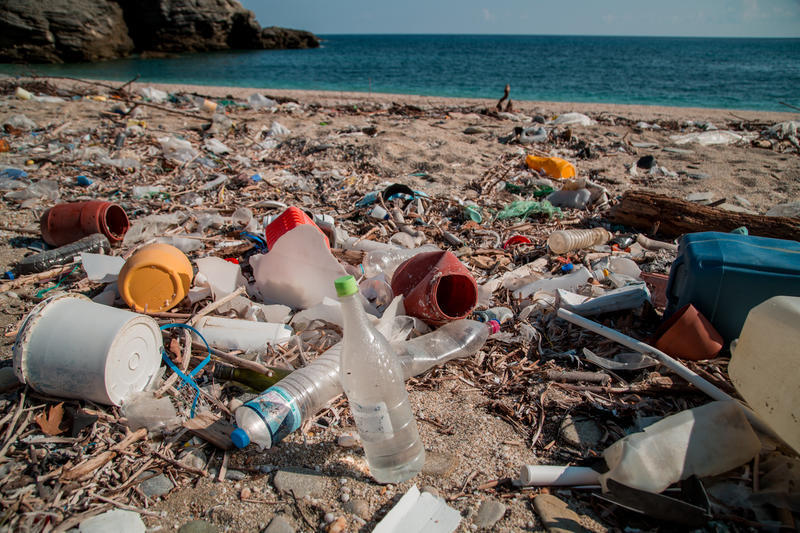
Nestlé ranked among top plastic polluters worldwide

Coca-Cola, PepsiCo and the Swiss food giant Nestlé are the world's biggest producers of plastic waste, according to an indicative study carried out by Greenpeace.
To better understand which companies are contributing to the plastic pollution problem, the environmental group carried out 239 plastic waste clean-up operations over nine months in 42 countries, in collaboration with the Break Free From Plastic movement. With the help of 10,000 volunteers they collected 187,000 pieces of plastic trash.
After analysing the waste and carrying out an auditExternal link, the organisations produced a top ten ranking of multinational firms that they say contribute to plastic pollution across the globe.
The worst offender was Coca-Cola, the world’s largest soft drink maker, Greenpeace said, with Coke-branded plastic waste found in 40 of the 42 countries.
+ Plastic and cigarettes make up bulk of Swiss beach litter
The most common type of plastic found was polystyrene, which is used for packaging and foam coffee cups, followed by PET, used in bottles and containers.
PepsiCo was ranked second, followed by Vevey-based Nestle. The top three companies alone accounted for 14% of the branded plastic pollution found worldwide.
Then came Danone, Mondelez International, Proctor & Gamble, Unilever, Perfetti van Melle, Mars Incorporated and Colgate-Palmolive.
More recyclable packaging
In a statement, Coca-Cola said: “We share Greenpeace’s goal of eliminating waste from the ocean and are prepared to do our part to help address this important challenge.”
The multinational has pledged to collect and recycle a bottle or can for every one it sells by 2030.
By 2025, Coca-Cola says all its packaging will be recyclable. Nestle says its packaging will be recyclable or reusable by that date, while PepsiCo is aiming for recyclable, compostable or biodegradable packaging. They are all working to use recycled content in their packaging as well.
Nestlé says it is working hard to eliminate non-recyclable plastics. It said it was also exploring different packaging solutions and ways to facilitate recycling and eliminate plastic waste.
The report’s authors said their study is not definitive but aims “to give an indication of the most common brands found in cleanups around the world”.
“It is not meant to be a definitive quantification of all the plastic pollution that can be attributed to specific companies, nor is the report a representative sample of all of the waste produced by plastics manufacturers or corporate brands around the world,” it said.

More
Plastic: How can the Swiss use so much and recycle so little?

In compliance with the JTI standards
More: SWI swissinfo.ch certified by the Journalism Trust Initiative





























You can find an overview of ongoing debates with our journalists here . Please join us!
If you want to start a conversation about a topic raised in this article or want to report factual errors, email us at english@swissinfo.ch.